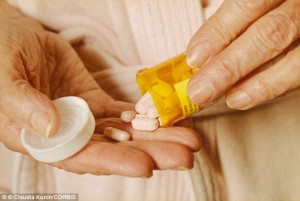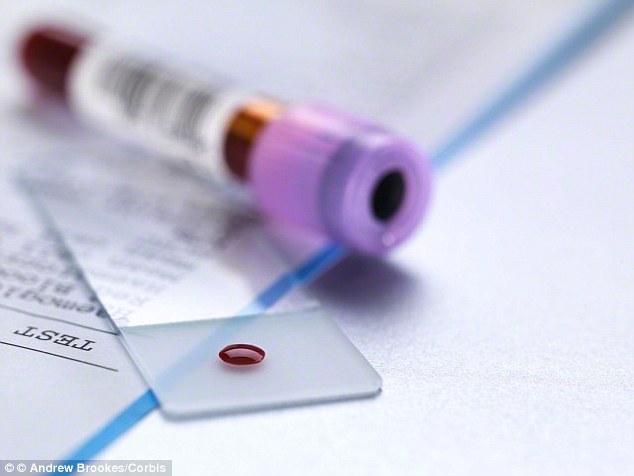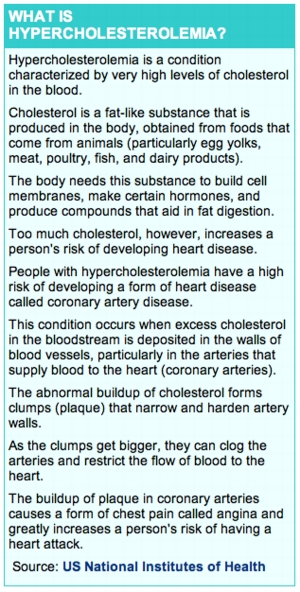New study reveals why taking statins may be harmful

People with high cholesterol are less likely to have type 2 diabetes, which could help explain why taking lipid-lowering statins may trigger the disease
People with high cholesterol are less likely to have diabetes, which may help explain why statins may trigger the condition.
Researchers found rates of type 2 diabetes among 25,000 patients with inherited hypercholesterolemia – a genetic disorder leading to high cholesterol levels – were significantly lower than among their unaffected relatives.
Some studies suggest people taking cholesterol-lowering agents face an increased risk of up to 46 per cent of developing diabetes, with higher risk linked to higher doses of the drugs.
However, experts say the absolute risk of diabetes is lower than the benefits of statins in cutting heart attacks and deaths.
Scientists are unclear about the cause for the link between statins and diabetes, although statins are known to impair insulin function.
One theory is that statins increase the activity of ‘bad’ cholesterol which increases its uptake into cells including the pancreas, which could cause it to malfunction.
The genetic defect in hypercholesterolemia makes the body unable to remove low density lipoprotein (LDL, or ‘bad’) cholesterol from the blood, resulting in high levels of LDL in the blood.
As a result, researchers suggest, the condition would naturally reduce the level of LDL processing by the pancreas and ultimately lead to lower rates of diabetes.
Dr John Kastelein and colleagues at the Academic Medical Centre in Amsterdam assessed the rate of type 2 diabetes between 25,000 people with inherited hypercholesterolemia and their unaffected relatives.

People with hypercholesterolemia – a genetic disorder meaning they have high cholesterol levels – were half as likely to have type 2 diabetes than their unaffected relatives
They found prevalence of type 2 diabetes was 1.75 per cent in familial hypercholesterolemia patients, compared to 2.93 per cent in unaffected relatives.
Even after taking into account factors such as body fat, patients with hypercholesterolemia were half as likely to have type 2 diabetes, says a report in the Journal of the American Medical Association.
Dr Kastelein said: ‘The small absolute difference in prevalence of type 2 diabetes between patients with familial hypercholesterolemia and unaffected relatives will not have a major influence on individual risk for type 2 diabetes.
‘However, the substantial relative difference of 50 per cent, together with previous findings, might suggest an effect of intracellular cholesterol metabolism on pancreatic beta cell function.
‘Nevertheless, a plethora of pathways contribute to development of type 2 diabetes, and therefore, the mechanism we discuss here can only be one part of the pathogenesis of this highly complex disease.’
 ‘If these findings are confirmed in longitudinal studies, they might provide support for development of new approaches to the prevention and treatment of type 2 diabetes by improving function and survival of pancreatic beta cells’ he added.
‘If these findings are confirmed in longitudinal studies, they might provide support for development of new approaches to the prevention and treatment of type 2 diabetes by improving function and survival of pancreatic beta cells’ he added.
More than eight million adults take statins, and they are the most widely prescribed drugs in the UK.
Dr David Preiss, clinical senior lecturer at the Institute of Cardiovascular and Medical Sciences, Glasgow University, said there was growing evidence of a complex interplay between blood fats, blood glucose and fat stores, in which statins and other agents appear to affect diabetes risk.
He said: ‘From a clinical perspective, the findings should allay any concerns about the potential effect of statins (in causing diabetes) when treating patients with familial hypercholesterolemia from childhood or young adulthood given that these patients appear to be at a low risk for diabetes.
‘However, this does not, and should not, alter guidance regarding the use of these important medications in patients at elevated cardiovascular risk given the clear overall benefit of statin therapy’ he added.
Written by Jenny Hope, Medical Correspondent for The Daily Mail, March 10, 2015.
FAIR USE NOTICE: This site contains copyrighted material the use of which has not always been specifically authorized by the copyright owner. We are making such material available in our efforts to advance understanding of environmental, political, human rights, economic, democracy, scientific, and social justice issues, etc. We believe this constitutes a ‘fair use’ of any such copyrighted material as provided for in section 107 of the US Copyright Law. In accordance with Title 17 U. S. C. Section 107, the material on this site is distributed without profit to those who have expressed a prior interest in receiving the included information for research and educational purposes. For more information go to: http://www. law. cornell. edu/uscode/17/107. shtml“
